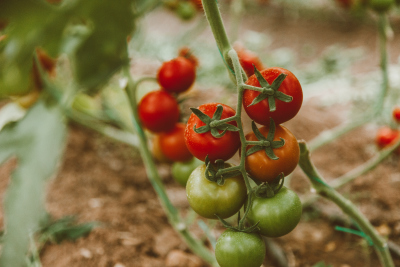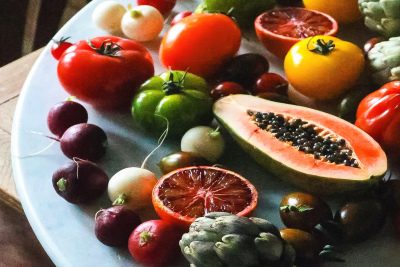Tomatoes are one of the most commonly used ingredients in the culinary world, yet there has been a long-standing debate regarding their classification as either a fruit or a vegetable.
This debate has been ongoing for centuries, with no clear consensus being reached. In this article, we will explore the science behind this debate and try to unravel the mystery of whether tomatoes are a fruit or a vegetable.
Tomatoes have been a part of our diet for centuries, and yet there still seems to be confusion over whether they are a fruit or a vegetable. While the answer may seem straightforward, the great tomato debate has continued to spark controversy amongst food enthusiasts, nutritionists, and botanists alike.
The Definition of a Fruit vs. a Vegetable
Before we dive into the tomato debate, let’s first define what constitutes a fruit versus a vegetable. Botanically speaking, a fruit is the mature ovary of a flowering plant, containing seeds. This means that any edible plant part that contains seeds is a fruit. On the other hand, vegetables are typically defined as the edible parts of plants that do not contain seeds, such as leaves, stems, and roots.
The Botanical Perspective
When it comes to tomatoes, botanically speaking, they are classified as a fruit. This is because they contain seeds and are derived from the ovary of a flowering plant. In fact, tomatoes belong to the same family as other fruits such as apples, oranges, and grapes.
However, the confusion arises because tomatoes are often used in savory dishes and treated as a vegetable in culinary contexts. This is due to their mild flavor and their ability to be cooked and used in a wide range of dishes, from salads to sauces.

Seedy Secrets: Why Some Vegetables Are Technically Fruits
It’s a fascinating fact that many vegetables we consume, such as cucumbers, peppers, zucchini tomatoes, pumpkins, and other squash, contain seeds, yet they are not classified as fruits. The reason behind this lies in the botanical definition of fruits and vegetables. Fruits are the mature ovaries of flowering plants that grow after fertilization and contain seeds that aid in reproduction. Vegetables, on the other hand, refer to any edible portion of a plant, including roots, leaves, stems, and even flowers. As a result, while being officially classed as fruits due to their seed-bearing nature, they are nonetheless considered vegetables based on their cultural and culinary usage. So, the next time you savor a juicy tomato or a crunchy bell pepper, keep in mind that despite their seedy secrets, they are still regarded as savory vegetables in the culinary world.
The Legal Perspective
The debate over whether tomatoes are a fruit or a vegetable has even made its way into the legal system. In 1893, the United States Supreme Court ruled that tomatoes should be classified as a vegetable for the purposes of taxation. The decision was based on the fact that tomatoes were typically used in savory dishes and therefore should be considered a vegetable.

However, from a botanical perspective, the Supreme Court’s ruling was incorrect. This decision has led to a continued debate over whether tomatoes should be classified as a fruit or a vegetable in various contexts.
The Nutritional Perspective
Regardless of whether tomatoes are considered a fruit or a vegetable, they are a highly nutritious food. Tomatoes are an excellent source of vitamin C, potassium, folate, and vitamin K. They also contain antioxidants, such as lycopene, which may help reduce the risk of certain diseases.
Tomatoes are also low in calories and high in fiber, making them a great food for those looking to maintain a healthy weight. Whether you choose to classify them as a fruit or a vegetable, there’s no denying that tomatoes are a nutritious addition to any diet.

Incorporating Tomatoes into Your Diet
Whether you prefer to classify tomatoes as a fruit or a vegetable, they are delicious. Tomatoes can be eaten raw in salads or sandwiches, or cooked in a wide range of dishes such as soups, stews, sauces, and more. With their bright color, juicy texture, and sweet, tangy flavor, tomatoes are a true culinary staple that can be enjoyed year-round.
While the great tomato debate may never be fully resolved, it’s clear that tomatoes are a versatile and nutritious food that can be enjoyed in a wide range of dishes. Botanically speaking, tomatoes are classified as a fruit, but they are often treated as a vegetable in culinary contexts. Regardless of their classification, tomatoes are an excellent source of vitamins, minerals, and antioxidants, and should be included in a healthy and balanced diet.








